An investment property is real estate purchased primarily to generate income—either through rent, capital appreciation, or both. Unlike a home you live in, investment properties are driven by profit potential, not personal use.
In the UAE, particularly in Dubai and Abu Dhabi, investment properties have become an essential part of wealth-building strategies, thanks to high rental yields, a tax-free environment, and stable economic growth. Whether you’re an individual investor or a company, understanding the classifications, opportunities, and risks of investment property can help you make informed decisions.
- What Is an Investment Property?
- Key Characteristics
- Classifications of Investment Properties
- Examples of Investment Properties in Action
- How Investment Properties Generate Profit
- Investment Property vs Personal-Use Property
- Notable Considerations Before Investing
- Legal and Tax Framework in the UAE
- Advantages of Investing in UAE Property
- Challenges and Risks
- How to Get Started with an Investment Property
- Key Takeaways
- FAQs
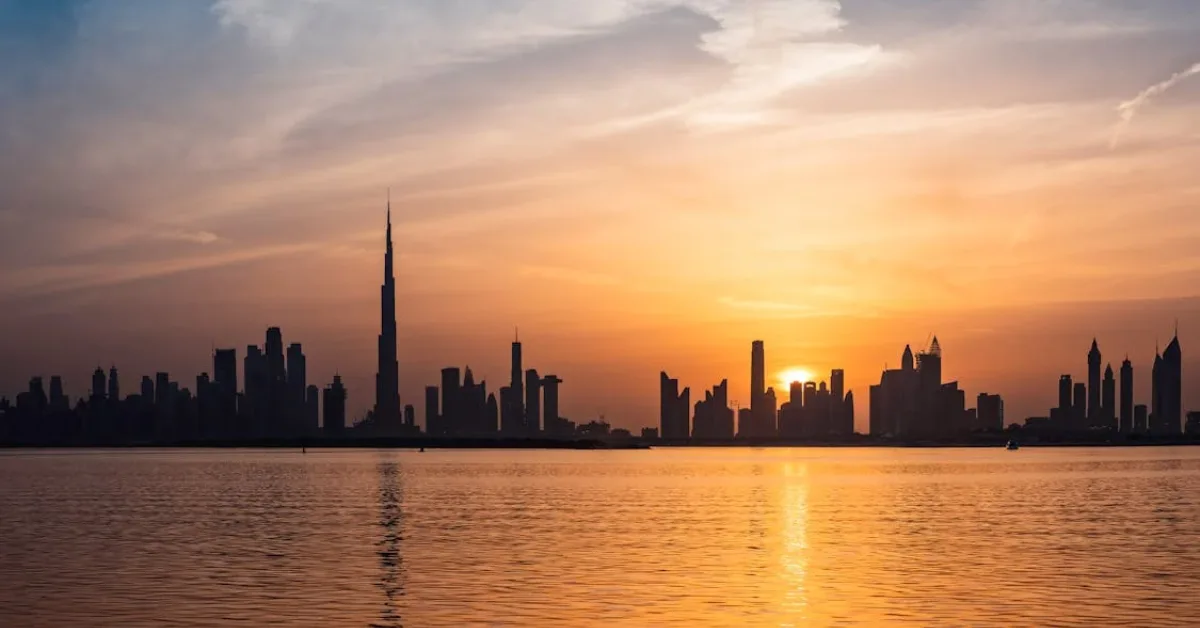
What Is an Investment Property?
An investment property is any land or building purchased primarily for earning returns through rental income, resale at a higher price, or both.
Investment properties can be owned by individuals, joint investors, or corporate entities. They can also serve as collateral for financing, making them powerful assets for long-term growth.
In accounting and taxation terms, frameworks like IFRS (IAS 40) classify investment property as property held to earn rentals or for capital appreciation, distinguishing it from “owner-occupied” property. In simpler terms, an investment property is bought to gain, not to live in, a concept that drives much of the UAE’s thriving real estate market.
Key Characteristics
Investment properties share a few defining traits that distinguish them from personal homes. Each characteristic plays a key role in how these assets perform financially and are managed within the UAE real estate market.
1. Profit-driven
The primary purpose of an investment property is to generate returns—either through steady rental income, capital appreciation, or both. In Dubai and Abu Dhabi, high rental yields and strong resale values make property investment a leading choice for building long-term wealth.
2. Ownership flexibility
These assets can be owned by individuals, families, corporations, or investment funds, offering flexibility in portfolio structure. Many investors in the UAE choose to register their holdings under Limited Liability Companies (LLCs) or partnerships for easier management and potential tax efficiency abroad.
3. Collateral potential
Investment properties can be leveraged to secure financing for future projects or expansion. Banks and lenders in the UAE often accept income-generating properties as collateral, making it easier for investors to grow their portfolios or reinvest profits.
4. Distinct tax and legal treatment:
Unlike personal-use homes, investment properties receive unique accounting and tax treatment. Under IFRS (IAS 40), they are classified as assets held for rental income or appreciation, not for owner occupation. While the UAE offers a tax-free environment, investors should still consider potential obligations in their home countries.
5. Professional management:
Many owners rely on property managers, maintenance contracts, and tenancy agreements to maximise occupancy and ensure compliance with local laws such as Ejari in Dubai and Tawtheeq in Abu Dhabi. Besides, proper management preserves asset value, enhances tenant satisfaction, and helps maintain a consistent return on investment.
You can use DataGuru to access community insights and historical transactions in Dubai and Abu Dhabi before purchasing.
Classifications of Investment Properties
Investment properties fall into several main categories, each offering unique advantages and risks. Understanding these classifications helps investors choose the right asset type for their goals, whether they’re seeking consistent rental income, long-term appreciation, or portfolio diversification.
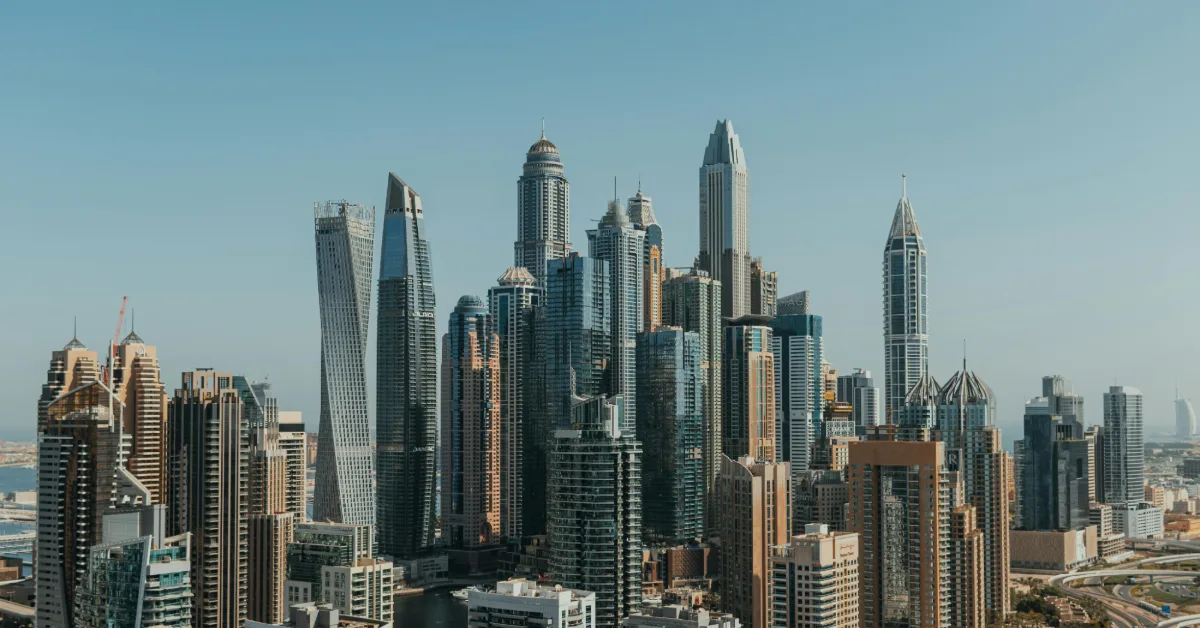
Residential Investment Property
Residential investment properties are among the most common types in the UAE. These include apartments, villas, and townhouses purchased primarily for rental income or resale profit.
They appeal to a vast pool of tenants—from young professionals to families—driving strong rental demand in areas such as Dubai Marina, Downtown Dubai, and Yas Island.
Examples include:
- Studio and one-bedroom apartments for short-term or long-term leasing
- Villas and townhouses in gated communities like Arabian Ranches and Saadiyat Island
- Multi-family buildings or duplexes offering multiple rental streams
- Serviced or holiday apartments listed on short-term platforms
Why investors prefer it:
Steady rental demand, flexible resale potential, and access to long-term visa eligibility through property ownership.
Explore the Available Properties for sale in Dubai
-
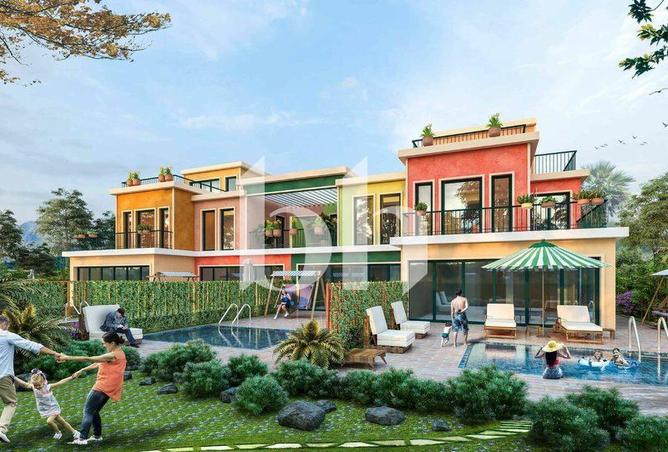
Townhouse
Listed 3 weeks ago
2,999,000 AED
Single Row | Genuine Resale | Close To Entrance
Portofino, Damac Lagoons, Dubai
4
3
2,274 sqft
-

Townhouse
Listed 3 weeks ago
4,200,000 AED
Handed Over | Corner Unit | Great Location
Santorini, Damac Lagoons, Dubai
5
4
3,246 sqft
-

Apartment
Listed 1 week ago
2,100,000 AED
Spacious 1BR | High Floor | Park View
South Ridge 6, South Ridge, Downtown Dubai, Dubai
1
1
915 sqft
-

Villa
Listed 23 hours ago
135,000,000 AED
One of a Kind | Sea Front | Burj Khalifa View
Sea Mirror, Jumeirah Bay Island, Jumeirah, Dubai
6
7
16,200 sqft
-

Villa
Listed 1 day ago
17,750,000 AED
Renovated | 4 Bedrooms | Skyline Views
Meadows 2, Meadows, Dubai
4
4
3,800 sqft
-

Villa
Listed 2 days ago
31,800,000 AED
Turnkey Home | View Today | Community Experts
Sanctuary Falls, Jumeirah Golf Estates, Dubai
6
7
5,744 sqft
-

Villa
Listed 2 days ago
26,500,000 AED
Large Plot | Renovation Opportunity | Park View
Olive Point, Jumeirah Golf Estates, Dubai
6
7
10,841 sqft
-

Penthouse
Listed 2 days ago
23,950,000 AED
1 of 1 | Incredible Renovation |Dual View
Palace Beach Residence Tower 2, Palace Beach Residence, EMAAR Beachfront, Dubai Harbour, Dubai
4
6
3,933 sqft
-

Penthouse
Listed 2 days ago
24,450,000 AED
Wow Penthouse | Renovated | Huge Terrace
Palace Beach Residence Tower 2, Palace Beach Residence, EMAAR Beachfront, Dubai Harbour, Dubai
4
6
4,552 sqft
-

Apartment
Listed 2 days ago
22,490,000 AED
One of one layout | Brand New | Upgraded
Jumeirah Gate Tower 1, The Address Jumeirah Resort and Spa, Jumeirah Beach Residence, Dubai
4
5
2,555 sqft
Commercial Investment Property
Commercial properties are designed for business use rather than residential living. They can generate higher returns but usually require greater capital and management expertise.
Examples include:
- Office towers in business districts such as DIFC and Abu Dhabi Global Market
- Retail spaces in malls or street-facing shops in Jumeirah or Al Maryah Island
- Industrial warehouses and logistics centres in Dubai Industrial City or KIZAD
- Mixed-use developments combining residential, retail, and office components
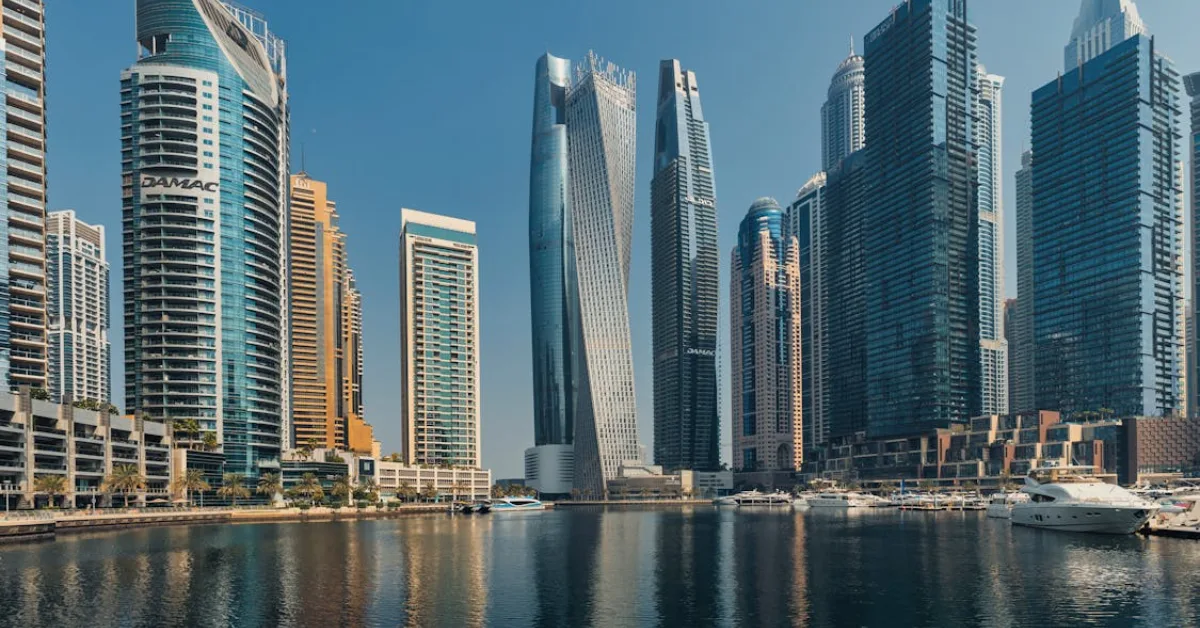
Investing in commercial real estate can offer long-term lease stability and higher rental yields, particularly when located in thriving commercial hubs.
The UAE’s growing startup ecosystem, coupled with flexible business ownership reforms, continues to boost demand for commercial spaces.
Land Investment
Land investment focuses on acquiring undeveloped or partially developed plots with the goal of long-term appreciation or future development.
In the UAE, investors often target freehold zones or emerging communities where government infrastructure and master plans indicate future growth potential.
Types of land investments:
- Residential plots for future villa development
- Commercial plots for retail or hospitality projects
- Strategic land holdings near new master developments
Before purchasing, investors should verify zoning regulations, ownership rights, and alignment with the master plan with authorities such as the Dubai Land Department (DLD) or Abu Dhabi Municipality.
Alternative and Indirect Investment Properties
Not all investors buy physical real estate. Some prefer indirect or fractional investments for diversification and liquidity.
Popular options include:
- Real Estate Investment Trusts (REITs): Publicly traded funds that own income-producing properties.
- Real estate crowdfunding platforms allow small investors to participate in large projects.
- Private real estate funds or partnerships: Managed portfolios for high-net-worth individuals.
These vehicles are ideal for investors who prefer liquidity, diversification, and passive income while avoiding day-to-day property management.
Examples of Investment Properties in Action
Here are a few practical examples of how investment properties work in the UAE:
- Purchasing a one-bedroom apartment in Dubai Marina to rent to professionals, earning consistent rental income.
- Acquiring a small commercial unit in Business Bay and leasing it to a café or boutique.
- Buying a vacation home in Ras Al Khaimah, which is used for short-term rentals most of the year.
- Holding land in a developing suburb of Abu Dhabi with expectations of appreciation over five years.
- Investing in a REIT listed on DFM that owns hotels and office towers across the region.
Try the Rent vs Buy Calculator to see if owning an investment property fits your financial goals.
How Investment Properties Generate Profit
Investment properties can create wealth in multiple ways, offering both short-term cash flow and long-term growth potential.
In the UAE, where the real estate sector remains one of the most dynamic in the region, investors typically benefit from a combination of rental income, capital appreciation, tax advantages, and financing leverage.
Rental Income
Steady, recurring payments from tenants are the backbone of most property investments.
In Dubai, rental yields typically range between 6% and 9%, among the highest globally.
Capital Appreciation
Over time, well-located properties tend to increase in value. Selling at the right time can generate significant profit.
Tax Advantages
The UAE offers no capital gains tax and no property tax, giving investors a substantial net return advantage compared to many global markets.
Portfolio Diversification
Adding real estate to your investment mix reduces dependency on volatile assets like stocks and crypto.
Leverage
Property financing enables investors to acquire assets using borrowed funds, amplifying returns.
You can use the Mortgage Calculator to explore the best home financing options and interest rates for investment purchases.
Investment Property vs Personal-Use Property
Understanding the difference between investment property and personal-use property is essential for buyers in the UAE.
Although both involve real estate ownership, they serve entirely different purposes, are treated differently under financial regulations, and generate value in distinct ways.
Before deciding whether to buy a property for investment or personal use, it’s essential to understand how the two differ in structure, purpose, and financial impact. While both can build long-term wealth, the motivations, management approach, and expected returns vary significantly.
The table below summarises the key differences between investment and personal-use properties to help you choose the right path based on your goals and financial plans.
| Feature | Investment Property | Personal-Use Property |
| Purpose | Generate income or appreciation | Owner’s personal residence |
| Use by Owner | Usually rented or leased | Occupied by owner/family |
| Tax Treatment | Income & expenses may be deductible | Deductions limited |
| Maintenance Focus | ROI and tenant satisfaction | Lifestyle and comfort |
| Examples | Rental villas, offices, REIT shares | Family villa, personal apartment |
Notable Considerations Before Investing
Investing in property is one of the most rewarding ways to build wealth in the UAE, but it requires careful planning and due diligence.
From initial financing to ongoing management, every step should align with your financial goals, lifestyle, and risk appetite.
Below are the main factors to consider before making your first, or next, property investment.
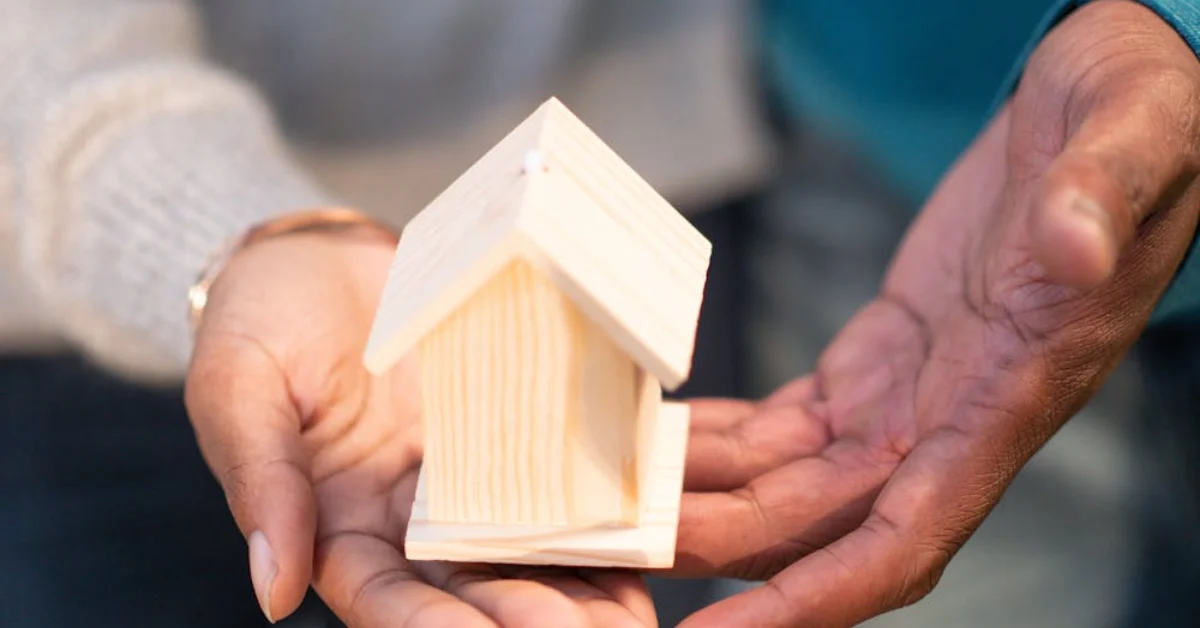
Upfront Capital and Financing
Investment properties often require a larger down payment (typically 20–25% in the UAE).
You can estimate affordability using Property Finder’s Upfront Costs feature available on listings.
Market Conditions
Study price trends and occupancy rates using Insights Hub, which provides quarterly reports and transaction data from the Dubai Land Department.
Maintenance and Management
Landlord duties include repairs, tenant screening, and compliance with tenancy laws (Ejari in Dubai, Tawtheeq in Abu Dhabi).
Legal and Regulatory Environment
Follow RERA and DLD regulations regarding lease contracts, eviction rules, and property registration.
Liquidity
Real estate is less liquid than stocks or bonds—selling can take weeks or months.
Risk of Vacancies
Prepare financially for periods without tenants, especially during off-peak seasons.
Legal and Tax Framework in the UAE
Each emirate follows clear property ownership and tenancy regulations.
Foreign investors can purchase in freehold zones, while leasehold or usufruct rights apply in specific communities.
All sales must be registered with the Dubai Land Department (DLD) or the Abu Dhabi Municipality, and the relevant authorities manage service charges.
Understanding these regulations helps avoid disputes and protects your legal rights as an investor.
- Ownership laws: Foreigners can own freehold property in designated areas.
- No property tax: Investors pay one-time registration and service fees only.
- Rental income: Tax-free in the UAE, but may be taxable in your home country.
- Accounting standards: Investment properties are accounted for under IAS 40, which requires a fair-value assessment.
For compliance and documentation, always consult a certified real estate lawyer or financial advisor familiar with UAE law.
Advantages of Investing in UAE Property
The UAE remains one of the world’s most attractive real estate destinations, offering stability, transparency, and strong returns. Whether you’re a first-time buyer or an experienced investor, the benefits are both financial and strategic.
- Strong ROI: Competitive yields and growing resale values.
- Tax benefits: No capital gains or income tax.
- Stable economy: Backed by government initiatives like Vision 2030.
- Global investor appeal: Safe, transparent real estate ecosystem.
- Golden Visa eligibility: Property investors may qualify for long-term residency.
Challenges and Risks
While the UAE property market offers exceptional opportunities, investors should remain aware of potential challenges. Understanding these early helps mitigate risk and maintain long-term success.
While promising, property investment carries some risks:
- Market fluctuations: Property values can dip due to global or local shifts.
- Regulatory changes: Reforms may alter ownership rules or visa thresholds.
- Maintenance costs: Unexpected repairs can reduce returns.
- Overleveraging: High borrowing may strain cash flow if rents drop.
Balanced, well-researched investments and portfolio diversification can mitigate these risks.
How to Get Started with an Investment Property
Starting your property investment journey in the UAE can be straightforward when you follow the proper steps and use reliable data tools. Here’s a simple roadmap to guide your process.
- Research market trends: Use Data Guru to assess property prices and rental yields.
- Set your investment goals: Decide whether you’re targeting rental income, resale, or both.
- Choose the correct location: Communities such as Dubai Hills Estate, Downtown Dubai, and Saadiyat Island experience strong demand.
- Explore financing options: Compare rates on Mortgage Finder.
- Work with a SuperAgent: Find verified experts using Property Finder’s SuperAgent tool.
- Complete due diligence: Verify ownership, maintenance status, and DLD registration.
Key Takeaways
An investment property is any real estate purchased primarily for income generation or capital appreciation rather than personal use.
In the UAE, investment properties range from residential apartments to commercial spaces and land plots, each offering unique profit potential. Returns come through rental income and value appreciation, supported by the UAE’s tax-free, investor-friendly environment.
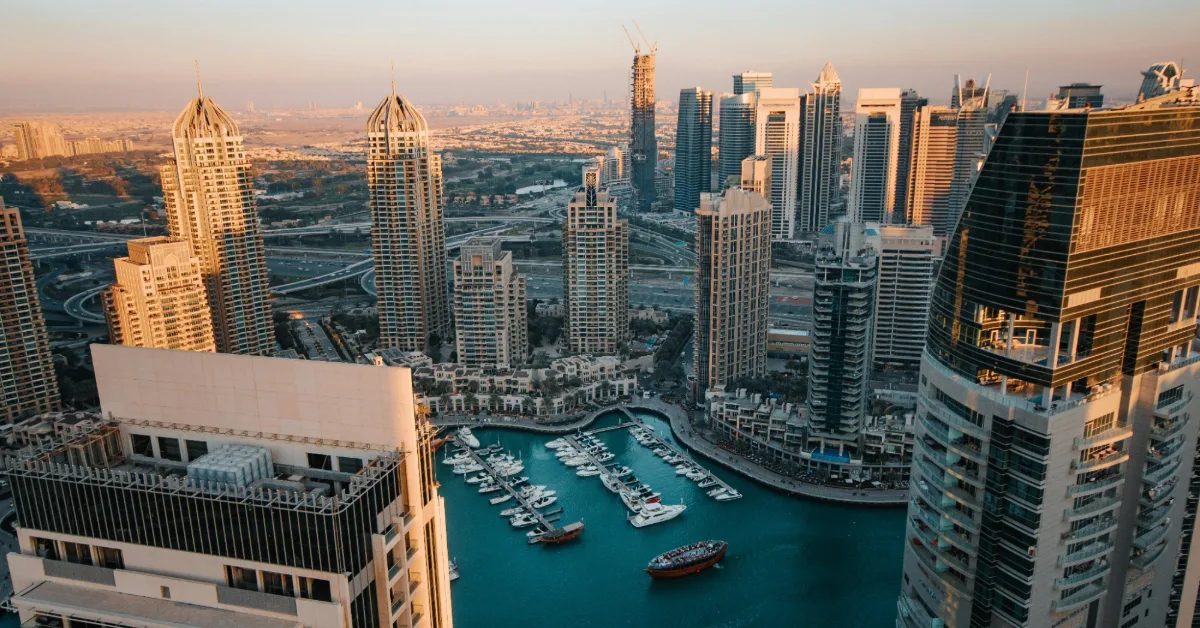
However, investors must plan carefully, considering financing, management, and legal factors, to ensure sustainable growth.
With tools like DataGuru, Mortgage Calculator, and Insights Hub, Property Finder helps investors make informed, confident decisions.
FAQs
There’s no property or capital gains tax in the UAE. You only pay registration and transaction fees. However, check if your home country taxes foreign income.
Yes, you can, but if you live in it full-time, it becomes a personal-use property and may lose certain investment classifications.
There’s no fixed amount, but entry-level apartments in Dubai can start around AED 500,000. Requirements vary by area and developer.
A Real Estate Investment Trust (REIT) lets you invest in property portfolios without owning physical assets, providing liquidity and lower entry costs.
Yes, it is when done through registered developers, verified SuperAgents, and licensed brokers. UAE property investment is among the most secure in the region.






